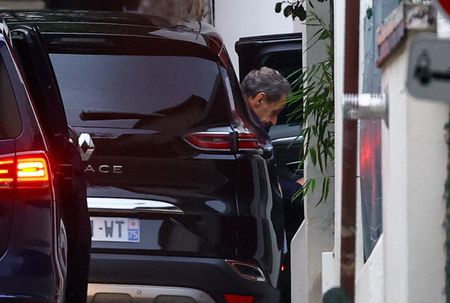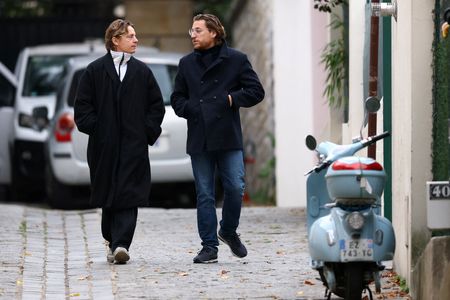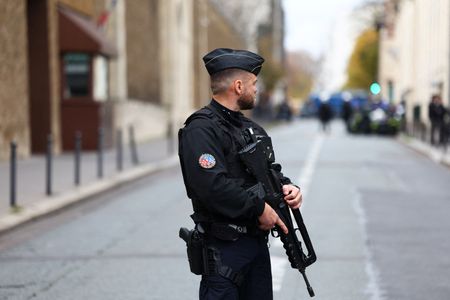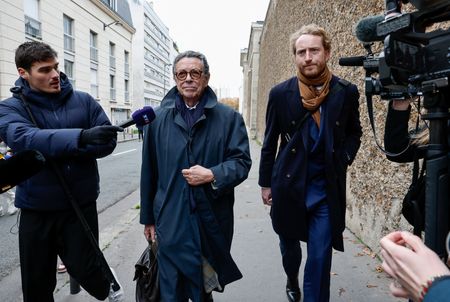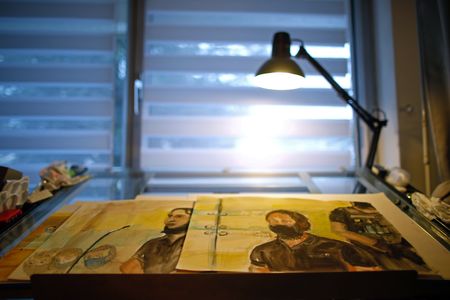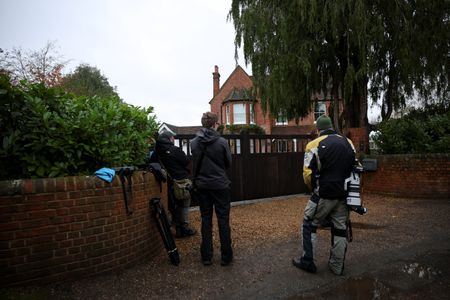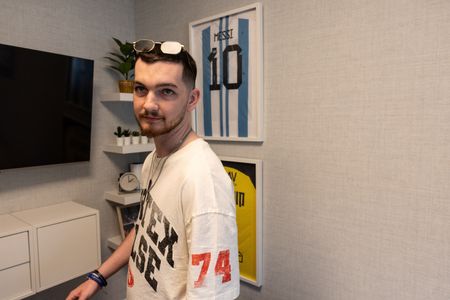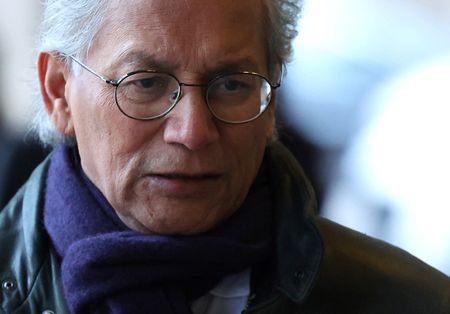By Juliette Jabkhiro
PARIS (Reuters) -Former French President Nicolas Sarkozy was freed from jail and went home on Monday, after a Paris court ruled he could be released while he appeals against his conviction for conspiring to raise funds from Libya.
Sarkozy was sent to prison on October 21 after he was found guilty in September of criminal conspiracy over efforts by close aides to procure funds for his 2007 presidential bid from late Libyan leader Muammar Gaddafi.
The former conservative leader, who was president from 2007 to 2012, told the court that being in jail had been tough.
‘NO FLIGHT RISK’
The court said he did not represent a flight risk and therefore did not have to remain in prison until his appeal.
His release was based on specific criteria, such as whether there was a risk he could flee, and is no indication of whether his appeal is likely to succeed.
“Vive la liberte” (Long live freedom), Sarkozy’s youngest son, Louis, posted on his X account with a childhood photo of himself smiling alongside his father, after the court granted the release.
Sarkozy’s five-year prison sentence had been enforced swiftly because of what judges in September called the “extraordinary seriousness” of the crime. He was incarcerated at La Sante prison in Paris – a stunning downfall for a former president.
But the public prosecutor on Monday recommended that Sarkozy be freed pending his appeal of the guilty verdict.
The court agreed to release him under judicial supervision, which includes a ban on leaving France and a ban on talking to any justice ministry official.
PRISON IS DRAINING, SARKOZY SAYS
Sarkozy has consistently denied wrongdoing, calling himself a victim of revenge and hatred. He did not attend Monday’s hearing in person but was taking part via video link from prison.
He told the court he would respect any demand from the judiciary if he was freed.
“I’m French, sir. I love my country. I’m fighting for the truth to prevail. I will comply with all the obligations imposed on me, as I always have,” he said.
Speaking of being in jail, he added: “It’s tough. Really tough — as it must be for any detainee. I’d even say it’s draining.”
Sarkozy has faced several legal battles since leaving office.
Last year, France’s highest court upheld a conviction for corruption and influence peddling, ordering him to wear an electronic tag for a year, a first for a former French head of state. The tag has now been removed.
Also last year, an appeals court confirmed a separate conviction for illegal campaign financing over his failed re-election bid in 2012. A final ruling from France’s highest court is expected on that case this month.
Sarkozy is also under formal investigation in another case for being an accessory to witness tampering.
(Writing by Ingrid Melander and Juliette Jabkhiro; Editing by Kevin Liffey and Alex Richardson)


